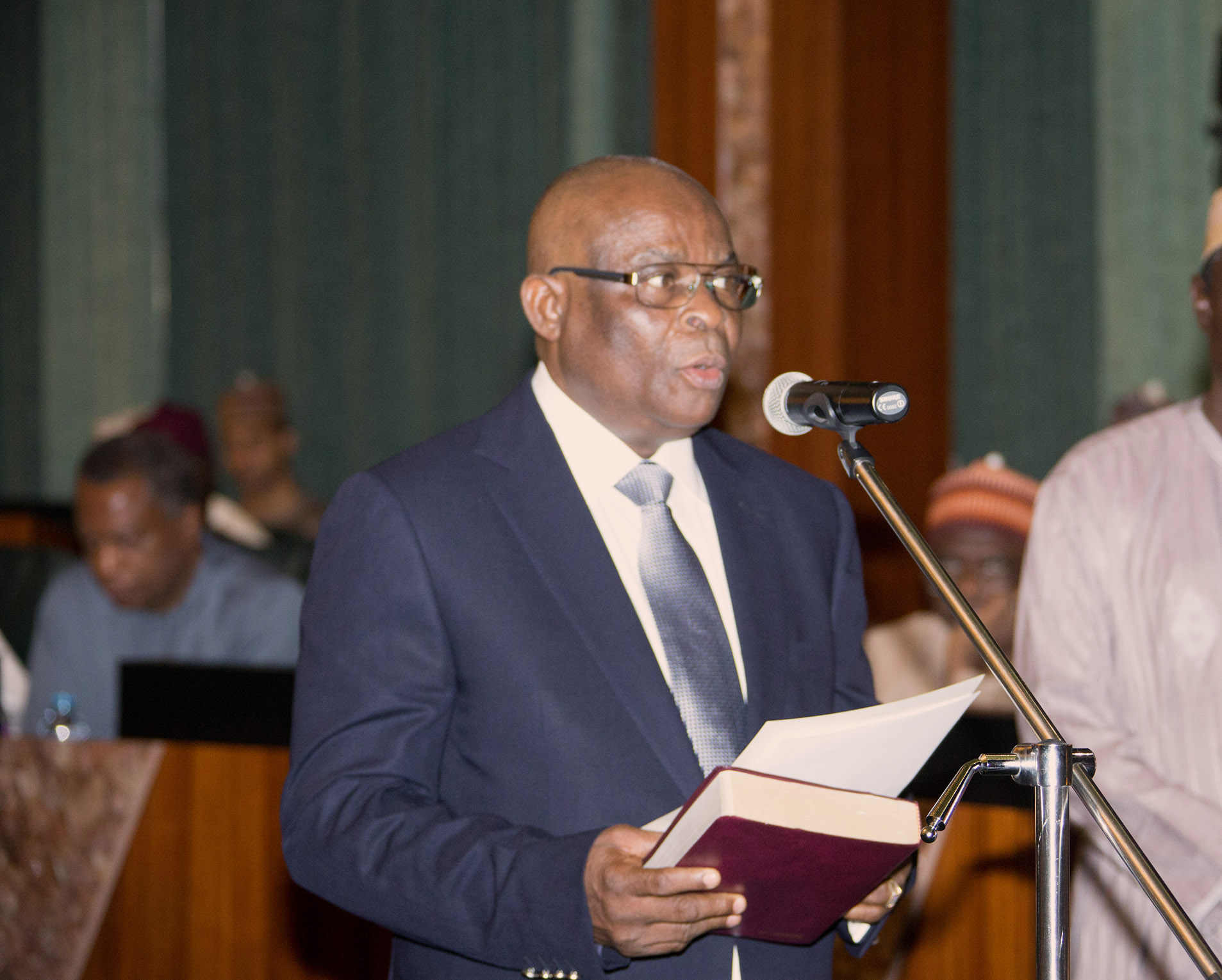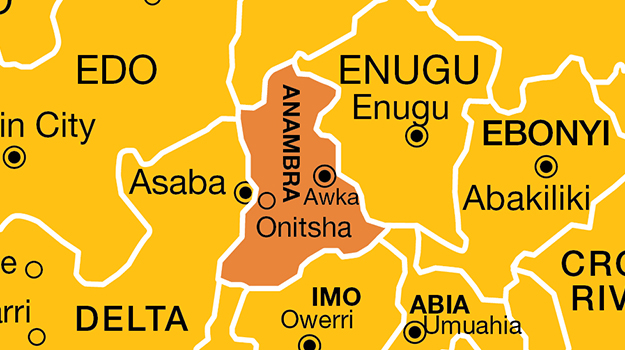A few weeks before his much-anticipated–but still too good to be true denial in some political circles both within and outside the state–public declaration to join the legion of aspirants for the primaries of the All Progressives Congress (APC) in preparation for the Ekiti state governorship election, then Hon. Minister of Mines and Steel Development Dr. John Kayode Fayemi was in the middle of a conversation in the dining room of his Isan-Ekiti country home with a few strategists and a handful of his core loyalists.
I had, accidentally, barged into this meeting in my intermittent search for food (because, for some inexplicable reason, I was always hungry for food whenever I found myself in this otherwise sleepy village that comes to life only when her golden child comes home) when I heard him say, to no one in particular, that “abandoned physical infrastructures can be completed within six months to a year; but how do you restore the values that has been lost?” Dr. Kayode Fayemi, now the governor of Ekiti State, suddenly became animated at this meeting as he recalled–with nostalgia–how youngsters of his generation then aspired to be like an uncle, a big brother, sister or even a neighbour who came to Ekiti from the big cities, having acquired the golden fleece with their regal comportments and carriages.
The governor made a particular reference to an Ekiti man (his name now forgotten) who had come from the Nigerian Defence Academy (NDA) to Christ School, Ado-Ekiti, his alma mater, in his starchy, razor-like gatored military uniform that had the school boys awestruck to the extent that some of them vowed to themselves and their friends on that day that they too would become accomplished military personnel like that man. That man, perhaps, influenced the governor’s decision to become an accomplished international expert in War Studies for which he’s also now known on that day.We may never know.
“When you are properly brought up and with the right education, there are certain things you just don’t—-and can’t—-do,” Dr. Fayemi balked when someone in the audience pointed his attention to the public drinking habit of cheap gins and beers on the side streets by now his predecessor Ayodele Fayose for cheap popularity. A mere mortal like yours sincerely couldn’t have been in this conversation with those set of people that operates on such high levels of mental acuity and intellectual frequency—–just like their principal—–because he is still in the ‘hunting and gathering’ stage of human evolution in which building appreciable infrastructure in his stomach for his sustenance (no thanks to Fayose) was more important than some intangible mental exertion. So, listen he did while his eating lasted.
Advertisement
The inscription “Reclaiming our Land, Restoring our Values” on banners, T-Shirts, billboards et al, I saw a few days to the public declaration was when it dawned on me that the day I was preoccupied with meeting the constant demands of my stomach in that dining room was, perhaps, one of the strategy meetings in which Fayemi’s campaign slogan was being discussed, if not conceived. And it resonated throughout the campaign.The slogan gained traction probably because the scales had by then fallen off Ekiti people’s eyes wherefore a society that used to be respected by the rest of the country for having the highest indices of integrity, principle and honesty had been desecrated beyond measure by their governor who inflicted, mercilessly, such humongous physical and psycho-emotional brutality on his own people.
In Fayose, the world saw a governor who talked down and insulted king sat will and ran employers of labour out of town for not doing his bidding. In him was a governor who sacked those still with the effrontery to ask questions about the direction of the state. In him we saw a state that was dealt a bad hand with a governor who plundered its resources with reckless abandon to such extent that life itself literally became short, nasty and brutish during which time ignorance became the new normal for governance and a badge of honour with which the people themselves gleefully became the poster progenies of Isaac Asimov with his quip that “my ignorance is just as good as your knowledge” in one of his books in the heydays of American anti-intellectualism. But it must be admitted, however unfortunate, that former governor Ayo Fayose succeeded in plundering and altering, to a larger extent, the state and the people’s collective psyche because the soul in his spirit Being issued not from the human species but from the locusts in the creation tapestry.So, he couldn’t have done otherwise. It is therefore pointless asking Fayose to apologize for his misdeeds, some of which are patently criminal in all facets, because his soul and his spirit do not share the same consistency hence their violent contradiction that manifests in his real life. But Ekiti shall rise again from its ashes. I digress.
What was probably billed as a campaign slogan has since transmuted into a directive principle of the Fayemi administration on which major policies are already–and would be–hinged. Since the land was“reclaimed” on Saturday, July 14, 2018, the task of “restoring”the other component will no doubt be daunting—–but not impossible. The enormity of “restoring our values” was probably why this phrase was emphasized in some key public engagements of the governor through his speeches since he assumed power not only as a reminder of its importance to the state’s socio-cultural fabric, but also as a form of appeal for the buy-in of the governed. First in this manifestation was the governor’s audacious “NEVER AGAIN” inauguration speech that may well have been christened the “October 16th Pavilion Declaration” in which the governor outlined the present prevailing negative values and why those that used to earn respect for Ekiti were lost. The second was at the 2018 Press Week organized by the Ekiti State Chapter of the Nigeria Union of Journalists (NUJ) in a Lecture delivered by the governor’s better half, Her Excellency Bisi Adeleye-Fayemi in which this “jewel of inestimable value” threw down the gauntlet with her analysis of the different values that are yearning for restoration in accordance with the “Omoluwabi” ethos as enunciated in Wale Ajadi’sbook while the third reared its head in the recent 2019 budget presentation speech of Governor Fayemi.
Advertisement
As this all-important but no less arduous restoration of Ekiti values are, one would have thought that the opportunity presented by the governor in these two pivotal speeches, and the Erelu Bisi Fayemi’s NUJ Lecture where she broke down this psycho-social, if not emotional complexity into smaller pieces which are already integral to the people’s socio-cultural make-up that they can relate with (most of which have taken flight hence the restoration efforts) could have since been the everyday dietary staple of the nation’s media, if not the state’s intelligentsia by now. Having demonstrated a clear departure from the self-inflicted turbulence that characterized the four-year tenure of the one-man government of Ayo Fayose in the way he maintains fidelity to his campaign promises, it should indeed be heartening to Fayemi and his extended political family that the good people of Ekiti State now have a government they can proudly showcase and truly call their own. But it should equally be stressed, however, that nothing would be more pleasing and satisfying to the governor of Ekiti State than to take their ownership of his government to the next level where the people themselves engage the Chief of State on issues of public interest with a view to drawing attention to other things that may have been blind-sided and offer suggestions. It would be very remiss of a state known as a repository of the highest educated elites per capita not only to engage a government whose basic form is its formation of intellection as the foundation for governance—–and the sine qua non of growth and development so that values become integral to deepening the democratic process and society’s understanding of public policies—–but to critique what the administration certainly sees (as reflected in the governor’s speeches) as the necessary pillars on which other physical infrastructural initiatives can only be sustained into the foreseeable future,talk not of the foundation upon which the society’s health and wellbeing must necessarily be predicated.
While no one should be in doubt that detailed roadmap towards the restoration of Ekiti values would have been crafted by now—–as is characteristic of anything that governor Fayemi sets out to achieve—–it should also be stressed here that a ‘carrot and stick’approach should be integral to this values restoration roadmap. As this important task requires all hands to be on deck, the concept of Values Academy (as we have been told by Erelu Fayemi in her NUJ Lecture is being seriously considered by the government) is a right step in the right direction. Since values can be likened to a chain that not only binds a people together for the common good, its existence also gives the people a unique sense of identity both from within and the larger society. Thus, the seriously weak links in this chain, when discovered, must be promptly removed and set aside to be used as spares that may or may not be utilized in the future, after going through certain re-orientation. People found to be maintaining unusual adherence to the values that a huge majority of people are still struggling with—–no matter their stations in life—–should be advertised and rewarded while those that are expected to uphold these values from their vantage positions but wilfully failed should be equally advertised and punished. This is when this all-important society’s bedrock can be taken seriously. Governor Fayemi has scored another first by making what is essentially a serious national crisis a very important pillar of his administration in this JKF 2.0.
Odere lives in Iropora-Ekiti. He can be reached at [email protected]
Advertisement
Views expressed by contributors are strictly personal and not of TheCable.







